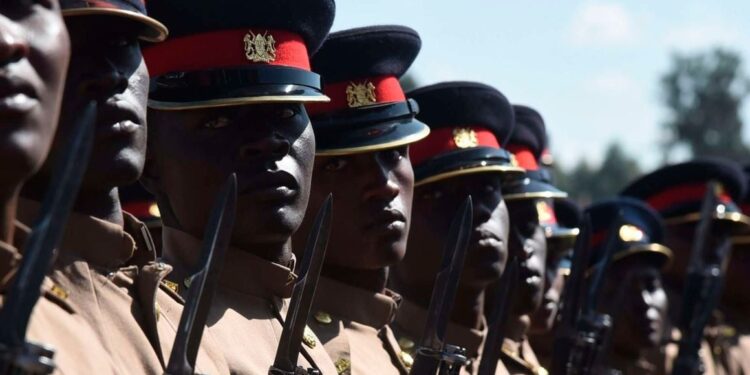By John Ikani
The European Union (EU) is providing around €20 million ($21.4 million) in military aid to the Kenya Defence Forces (KDF) to enhance their capacity against threats like the Somali militant group Al Shabaab.
For the first time, Nairobi will receive direct support from the EU Peace Facility, a fund established in 2021 by the European Union to assist security initiatives in allied African nations.
According to the European Council, these funds will help the KDF in safeguarding Kenya’s borders and managing both internal and external threats.
“The assistance measure will also contribute to securing border areas and countering increased Al Shabaab’s operations along the border with Somalia.,” the European Council said on Monday.
The support from the European Peace Facility will be used for purchasing equipment and providing services such as technical training.
Kenyan army infantry units will receive tactical unmanned aerial vehicles, non-lethal interceptors and jammers, systems to counter improvised explosive devices, electronic warfare tools, cross-country tactical vehicles, and a mobile medical post, as per a dispatch.
The EU has been a key supporter of the African Union Transition Mission in Somalia (Atmis), which the KDF has been part of for a decade. However, recently, the EU and other donors have reduced funding for the mission due to multiple security challenges on the continent.
Since the creation of the EU Peace Facility in 2021, it has mainly focused on aiding the Sahel region, supporting countries like Niger, Mali, and Burkina Faso. Until now, the KDF had not benefited directly from this facility.
The $21.4 million package also includes assistance for the Kenya Navy’s marine units, which will receive night vision goggles, life vests, and other protective equipment.
EPA pact
The funds come under the EU-Kenya Strategic Dialogue pact from June 2021, which aimed to implement trade, economic, and development cooperation provisions of the Economic Partnership Agreement (EPA) with the East African Community.
Initially, the EPA was meant to be a bloc-to-bloc agreement, but countries have since decided to implement it individually when convenient.
Recently, the EU and other Western countries have started linking security issues with business and investment deals, emphasizing Kenya’s national security improvements within agreements that traditionally focused on economic issues.
The EU stated that the Strategic Dialogue of 2021 was intended to enhance EU and Kenya’s cooperation on regional and multilateral matters, including democracy, governance, human rights, gender equality, peace, security, stability, trade, investment, social development, climate change, green transition, and the digital agenda.
“By investing in the capacities and capabilities of its defence forces, the EU reaffirms its support to Kenya as a pillar of peace and stability in the region,” the Council said.
Non-Nato ally
This support is in addition to military upgrades Kenya is set to receive from the US. On Monday, US President Joe Biden officially added Kenya to the list of major non-Nato allies, making it the first Sub-Saharan African country to be included.
As a non-Nato ally, Kenya will have access to advanced military equipment, training, and loans to enhance its defence capabilities. However, this status does not mean the US is obligated to defend Kenya in case of an attack by a third country.
During President William Ruto’s state visit to Washington in May, the US announced that Kenya would receive $18.2 million for counterterrorism efforts and improvements to the criminal justice system.
Since 2020, the US has invested about $230 million in Kenyan security agencies. Last month, it also provided Kenya with eight refurbished helicopters and agreed to expand its presence at Manda airbase, though the maintenance of these helicopters will be Kenya’s responsibility.
Despite these efforts, Kenya’s military may need additional funds for a comprehensive upgrade of its equipment and services over the next four years.




































